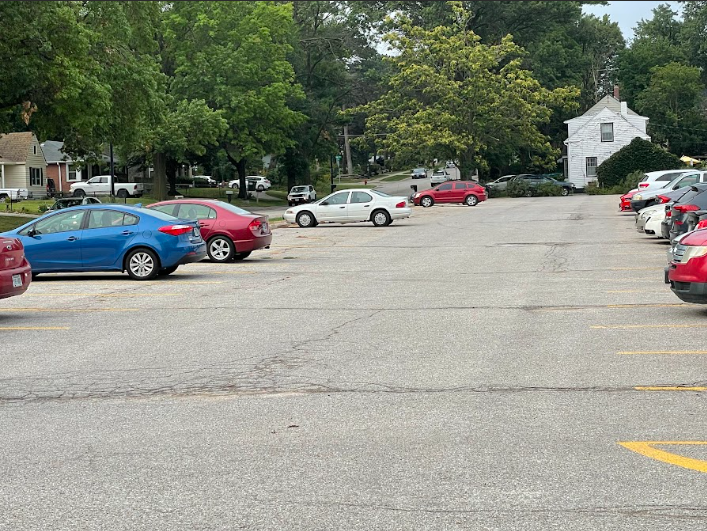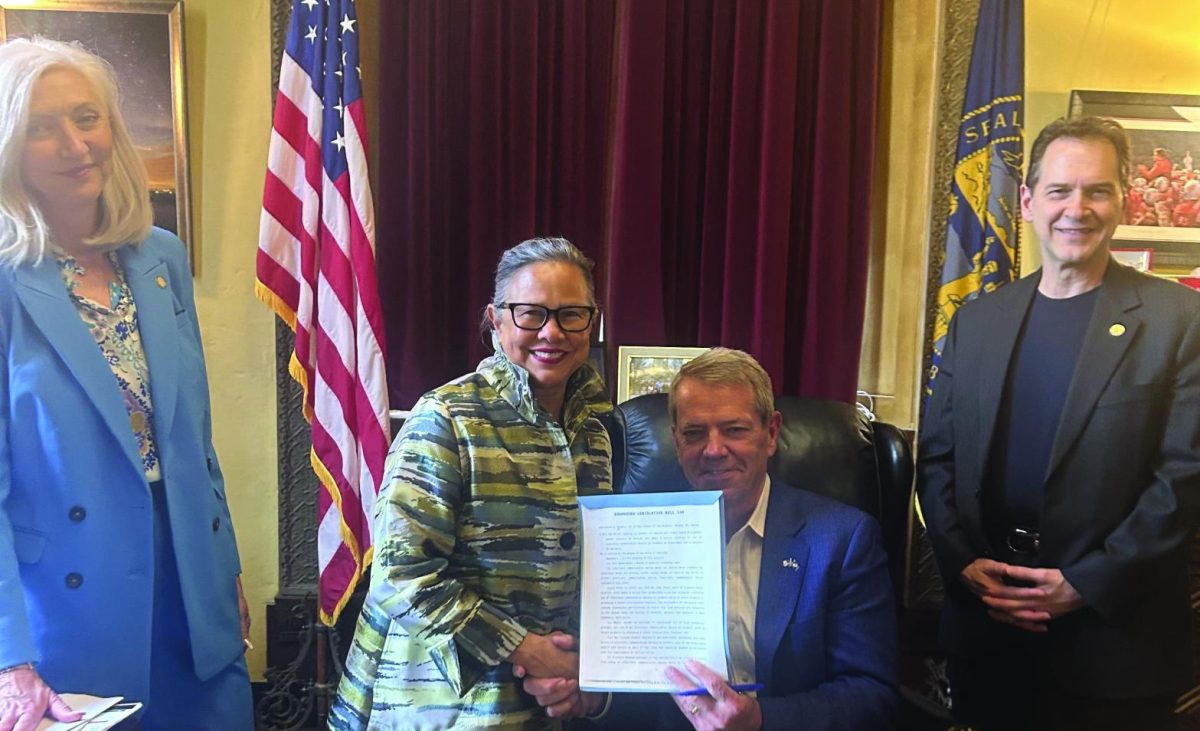At the beginning of this school year, Lincoln Southeast students received not only a striking new parking pass (this year’s chosen sticker is leopard print) but also an updated parking policy. Last year, parking permits were separated by either “A” or “C” lot and students were restricted to parking in the lot that their sticker represented. Mostly seniors received the privilege of parking in “A” lot, and the remaining passes were given to lucky juniors.
However, this year the parking passes are now applicable to either lot, a decision that caused uproar in the Class of 2025.
The general feeling amongst upperclassmen about the new parking policy was outrage as the right to park closest to the school was seemingly ripped from those with the most seniority.
Senior Rako Ranjbar expressed his concerns about getting a spot in the morning as a result of the new policy and voiced the opinion of many, saying, “seniors and juniors should be able to park in ‘A’ lot, and [underclassmen] should only park in ‘C’ lot, because we should bring back seniority rights.”
But, did seniors ever have the right to park in “A” lot? Associate LSE principal Crystal Folden does not think so.
“It has never been that a senior is guaranteed a spot,” Folden said. She explained that when the creation of “A” lot happened, there were more driving seniors than spots and so some seniors were not able to park in the lot. But, she said, the change in policy was not about changing seniority “rights” but rather about using up more of “A” lot.
In past years, the LSE staff have noticed that after lunch, multiple spots open up in “A” lot when seniors with short schedules leave for the day. Folden questioned why students who had parked in “C” lot that morning shouldn’t be able to move their car at lunch if they wished. Additionally, she noted that there were about twenty parking tickets being given out each day to students who parked in “A” lot with only a “C” lot pass.
Folden wanted to decrease the number of parking tickets and fines being given out while using “A” lot spots as much as possible. The solution that she and the rest of the staff members that work with student parking came up with was a pass that applied to both “A” and “C” lot.
The decision wasn’t an easy one, Folden emphasized. But in the end it was the solution that was the most promising. She acknowledged that not all students are happy with changing the policy, especially seniors, but also asked what senior class would have been happy to accept the change?
So far, data has shown that the parking policy change has had some positive effects. As of two weeks ago, the number of parking permits that have been given out to students was much less than the actual number of spots in “A” and “C” lot combined, so all students that do have a permit also have a parking spot. And, the number of daily parking tickets have also decreased.
Could this policy be the one? It may be too soon to tell.








